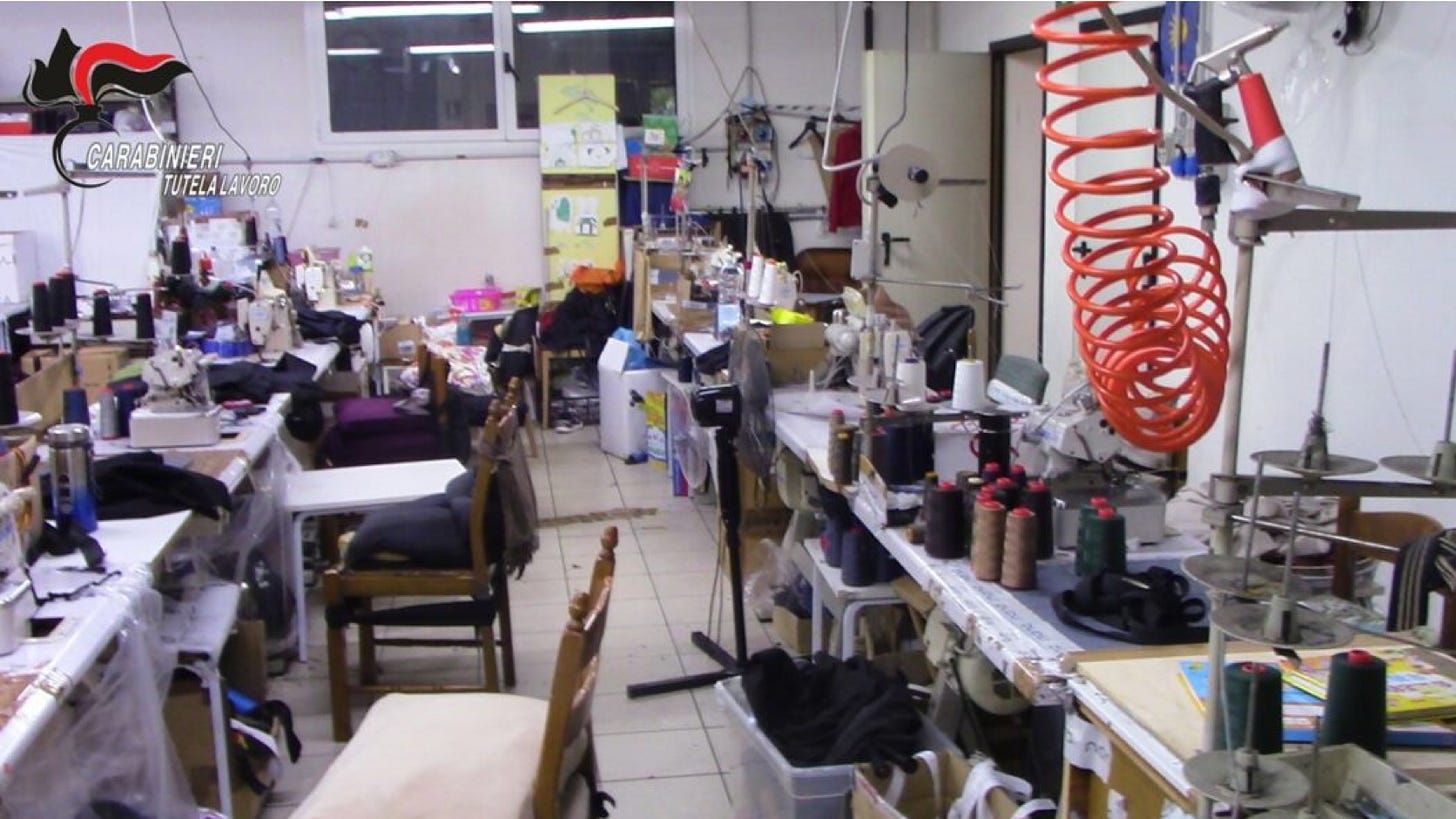The newspaper “Il Fatto Quotidiano” reported in an article that more than 100 workers were without a residence permit. They arrived in Italy from China in search of work in November last year.
A seamstress worker without a contract worked for example straight from 10 am to midnight every day of the week, paid piecework for a few hundred euro a month. He slept and ate at his workplace.
Others came from Lahor in Pakistan. They agreed to work in a textile workshop in Reggio Emilia after four months of hardship in Bologna without employment. One worker had fled the war in Kashmir in 2016 and landed in Italy in 2023 after a horrifying journey on the Balkan route that cost him violence and threats. He worked 12 to 14 hours a day, without holidays, leave, weekly rest, training, security and medical care. With two daily breaks where. And with a record hourly wage: 0,50 euro per hour.
These are just some of the many personal stories, 101 to be precise, that emerged at the end of a series of inspections carried out from 7th to 10th of October in companies in the textile-clothing sector in the provinces of Reggio Emilia and Modena. They resulted in the suspension of numerous business activities, with one person arrested and seven others reported for illegal brokering and labour exploitation.
The activity, coordinated by the Prosecutor's Office of Reggio Emilia, saw the Carabinieri of Reggio and Modena at work, together with the Labour Inspectorates of the two provinces, who checked six textile factories: a company in Modena considered to be the leader of the illegal activities, one in the municipality of Reggio Emilia and four others in the Lower Reggio Emilia area.
The investigation was triggered off by a complaint from Safeer Muhammad, a former employee of the one-man company “Confezione He Huanliang”. Last June, Safeer leaned on the municipality of Reggio Emilia and the regional project Common Ground, which protects victims of exploitation, to tell what had happened to him without fear of retaliation.
He had worked uninterruptedly for a month as a tailor at the company headquarters in Via Gramsci, every day from 9.30 a.m. to midnight, without a weekly rest, alongside workers of Chinese origin who worked even more gruelling shifts than his, sleeping in a room provided by the owner.
The total pay for that month, paid in cash, was 190 euro. The images taken by the labour inspection unit of the Reggio Emilia Carabinieri show the conditions of degradation, of promiscuity between the work tables (more than one hundred) and the mattresses lying on the floor on which to sleep, of the Reggio Emilia factory. Where the toilets were indecent and flimsy plasterboard walls divided the rooms without ventilation and with inadequate electrical equipment.
In validating the request for house arrest for some persons, Judge Andrea Rat said that the owner of the factories was aware of the state of need of the workers, who had accepted his conditions only because of the absolute need for the money necessary for their own survival and that of their families in their countries of origin. Taking advantage of people's fragility and needs is an increasingly widespread practice that unfortunately in 2024 has exponentially increased the use of “caporalato” and exploitation in the labour market also in former left-orientated Emilia-Romagna.



